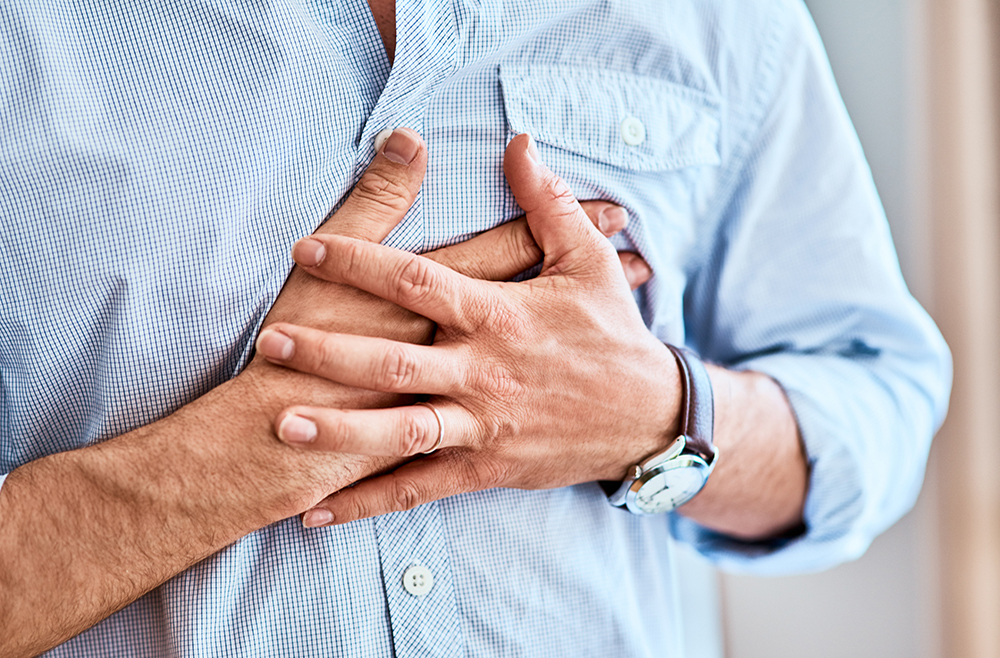Rapid heartbeat makes you feel that your heart is working very fast. You can also feel it by the changes happening in your chest, throat, and neck. This problem can prove to be harmful to you, but does your heart beat faster after eating food. If so, this could be a sign of serious consequences for you. Also, it can be due to your lifestyle and diet. After eating food, the heart rate increases only when you have eaten very spicy and spicy food in food. Apart from this, if you already have any heart-related health problems and if you consume a lot of caffeine, nicotine, or alcohol, then due to this also your heart rate can increase after eating food. Due to this, you may have problems with breathing, dizziness, chest pain, and fainting. For this, without wasting time you should consult your doctor and get the necessary tests done.
Heart palpitations after eating food
If you live under a lot of worries, fear, or stress, its effect can be seen in the form of a rapid heartbeat after eating. You may feel discomfort after eating food due to too much work or exercise. Caused by the use of caffeine, nicotine, alcohol, or illegal drugs such as cocaine and amphetamines Apart from this, certain health conditions such as thyroid disease, low blood sugar level, anemia, and dehydration can also cause rapid heart rate. Even during pregnancy, your heart rate can increase after eating food. Consuming food rich in carbohydrates, sugar, or fat can make you nervous. Excess intake of sodium can also increase the heart rate. It can also happen due to heart blockage or an increase in cholesterol level.
These diseases can be caused by a fast heartbeat
Heart Attack Diseases related to heart arteries Stop beating the heart Heart valve problems Heart muscle problems
Remedies for increased heart rate
If your heart rate increases after eating food, then, first of all, you need to change your diet. You should include more whole grains, green vegetables, and fruits in your diet. Also, you should use a very little amount of oil in your food and if possible, use different oil every day or two-four days. Consume very less amount of salt, sweet and fat in food. Many people think that if they consume rock salt or pink salt instead of common salt, then they can avoid heart-related problems, then it is not so. Rock salt may contain additional minerals, but the amount of sodium in it is not very low. In this case, it can be harmful to you. Apart from this, the cause of a fast heartbeat after eating food can be too much fatigue, work, or stress. For this, you should get enough sleep and rest. If you do a lot of exercises, it can also have an effect. Consuming the amount of caffeine in the food is also a big reason for this. Caffeine is found in many types of energy drinks, tea, and coffee. Due to this your heart rate can increase. Apart from this, avoid outside food. This is one of the main reasons. As we have already told you that your problems can increase due to alcohol and smoking.
Test
Electrocardiogram (EKG) Heart Monitoring Recording Heart Activities Chest X-ray Echocardiogram
Apart from this, follow all kinds of blood tests and diets suggested by the doctor so that you can get rid of this problem soon.
(Disclaimer: The content on this site is for informational purposes only, and should not be taken as professional medical advice. Always seek the guidance of your doctor or other health professionals for any questions you may have regarding your health or a medical condition.)

 Do you see your heart beating rapidly and fluttering on small petty occasions? Do not neglect pain, it's time to take action and look out for some solutions.
Do you see your heart beating rapidly and fluttering on small petty occasions? Do not neglect pain, it's time to take action and look out for some solutions. 









.jpeg)



















.jpg)
.jpeg)